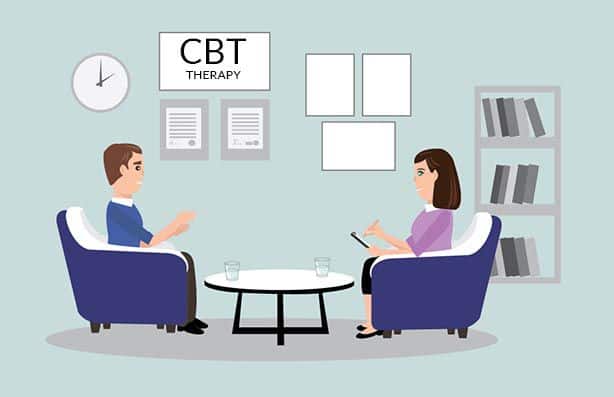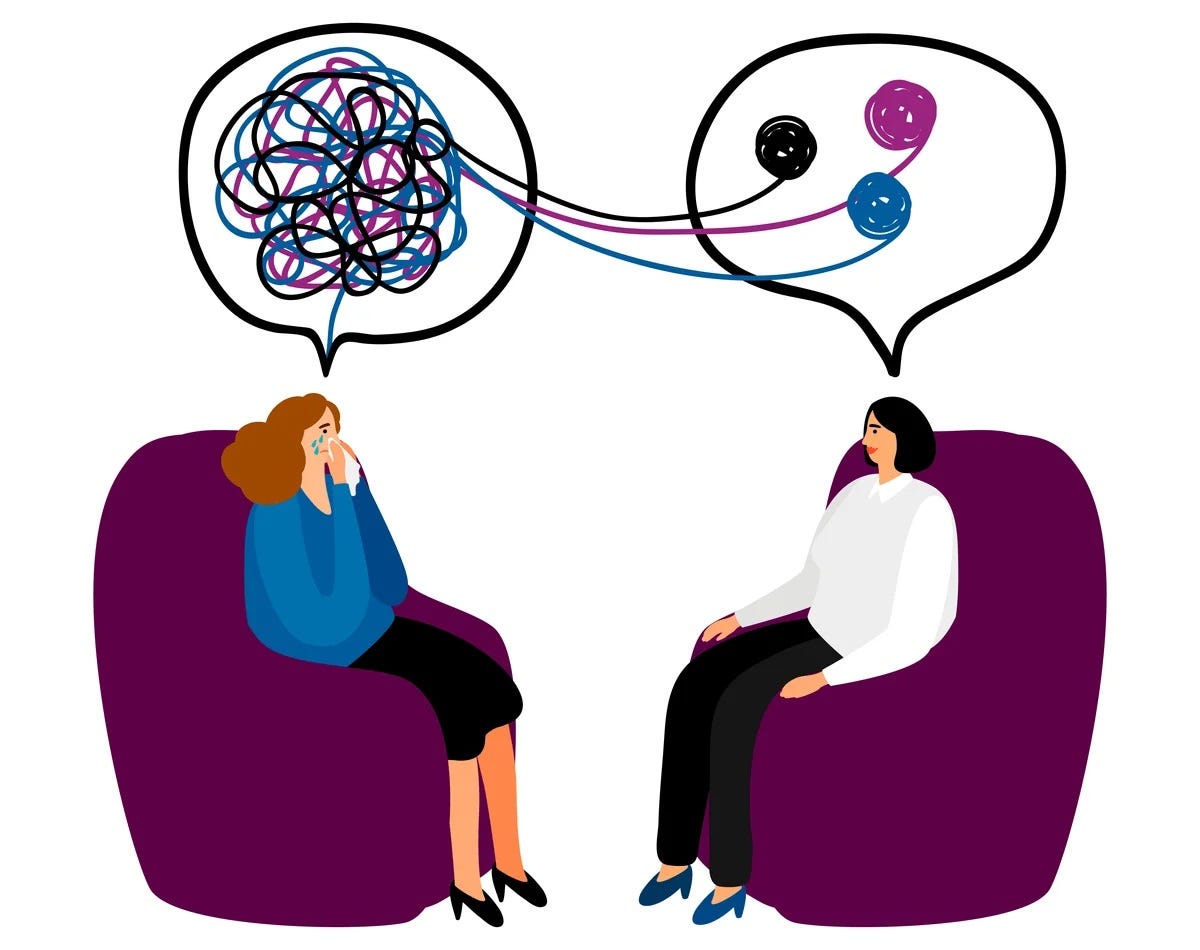Introduction
In a world that is increasingly aware of the importance of mental health, Cognitive Behavioral Therapy (CBT) has emerged as one of the most effective therapeutic approaches. It is a highly structured, goal-oriented form of psychotherapy that helps individuals change negative thought patterns and behaviors, improving emotional well-being. As mental health challenges become more prevalent across the globe, the demand for trained professionals in CBT has skyrocketed, presenting an excellent opportunity for individuals to gain specialized knowledge through professional training.
In this article, we will explore the significance of Cognitive Behavioral Therapy, the science behind it, its widespread applications, and the growing demand for professionals trained in CBT. Furthermore, we will showcase how Al Mithaq Institute, an accredited provider of online and offline education, offers comprehensive CBT courses designed to equip individuals with the knowledge and skills to excel in this field. Whether you are a mental health professional, educator, or someone seeking personal growth, CBT training could be your gateway to professional success and personal development.
1. Understanding Cognitive Behavioral Therapy (CBT)
Cognitive Behavioral Therapy (CBT) is based on the premise that our thoughts, emotions, and behaviors are interconnected. By changing negative thought patterns, individuals can improve their emotional responses and, in turn, alter behaviors that are harmful or unproductive. CBT is practical, evidence-based, and highly effective for a variety of mental health issues, including anxiety, depression, PTSD, and obsessive-compulsive disorder (OCD).
What Makes CBT Different?
Unlike other therapeutic methods, CBT is action-oriented and focuses on specific problem-solving skills. While traditional psychotherapy may delve deeply into childhood experiences and unconscious processes, CBT emphasizes the present and future, addressing immediate challenges.
- Cognitive Restructuring: Identifying and challenging irrational thoughts and beliefs.
- Behavioral Interventions: Learning how to change unhelpful behaviors.
- Mindfulness: Cultivating awareness of thoughts and emotions in the present moment.
Historical Context of CBT
Developed by Dr. Aaron T. Beck in the 1960s, CBT emerged from the recognition that people’s thinking patterns played a significant role in their emotional responses. Beck's research led him to develop a structured approach to therapy that combined cognitive and behavioral techniques. Over the years, CBT has evolved and been adapted to treat a wide range of psychological disorders.
2. The Science Behind CBT
The scientific basis of CBT lies in the cognitive model, which suggests that our thoughts about situations, rather than the situations themselves, determine our emotional and behavioral responses. This model has been supported by decades of research, particularly in the field of neuroscience, which shows that CBT can lead to positive changes in brain function.
How Does CBT Work on the Brain?
Studies in neuroscience suggest that CBT can physically alter the structure of the brain. For example, research shows that CBT can increase activity in the prefrontal cortex (responsible for decision-making and rational thinking) while decreasing activity in the amygdala (the part of the brain responsible for emotions like fear and anxiety). This results in better emotional regulation and a reduction in negative emotional responses.
Research Supporting CBT
Numerous studies and meta-analyses have validated the effectiveness of CBT in treating various psychological conditions. For instance, a comprehensive study by the American Psychological Association revealed that CBT is more effective than other therapeutic approaches in treating major depressive disorder, with 70% of participants showing significant improvement.
Moreover, research indicates that CBT is highly effective in treating disorders like:
- Anxiety and Panic Disorders
- Post-Traumatic Stress Disorder (PTSD)
- Obsessive-Compulsive Disorder (OCD)
- Bipolar Disorder
- Eating Disorders
3. Applications of CBT in Modern Psychology
CBT’s versatility extends beyond traditional therapy settings. It has been widely applied in various domains, from mental health treatment to personal development and workplace interventions.
CBT in Treating Mental Health Disorders
CBT is widely recognized as an evidence-based treatment for various psychological conditions:
- Depression: By challenging negative self-beliefs and cognitive distortions, CBT helps individuals break the cycle of depression.
- Anxiety: CBT teaches techniques such as exposure therapy, where individuals confront their fears in controlled environments, leading to reduced anxiety over time.
- OCD: Exposure and Response Prevention (ERP), a form of CBT, helps individuals with OCD by gradually exposing them to situations that trigger compulsive behaviors, ultimately helping them resist the urge to perform rituals.
Beyond Therapy: CBT in Everyday Life
CBT isn’t just for people with clinical conditions. Many use it for self-improvement and to manage everyday stressors:
- Workplace Stress: Professionals can use CBT techniques to manage stress, improve productivity, and handle workplace conflicts.
- Personal Growth: Individuals can use CBT strategies to improve self-esteem, build emotional intelligence, and develop healthier habits.
- Addiction Recovery: CBT is a key component of many addiction recovery programs, where it helps individuals identify the thoughts and behaviors that perpetuate substance abuse.
4. The Growing Demand for CBT Professionals
With increasing mental health awareness, there is an ever-growing demand for skilled professionals trained in Cognitive Behavioral Therapy. The World Health Organization (WHO) has noted the global surge in mental health conditions, highlighting the need for qualified mental health professionals worldwide. This demand spans across various sectors, from healthcare to education to corporate environments.
Career Paths for CBT Professionals
Professionals trained in CBT can pursue a wide array of career opportunities:
- Therapists and Counselors: Many CBT-trained individuals work in private practice or alongside other health professionals in hospitals, clinics, and mental health centers.
- Corporate Consultants: With the rise of workplace mental health initiatives, CBT specialists are hired to help employees manage stress, improve productivity, and foster a supportive work environment.
- Educators and Trainers: Trained CBT practitioners can also teach and train others, spreading knowledge of cognitive and behavioral techniques to schools, organizations, and therapeutic communities.
Growth of the Online Therapy Market
As online therapy services continue to gain popularity, the demand for online CBT practitioners is also increasing. Telehealth and virtual counseling are becoming mainstream, creating a global market for trained professionals.
5. Why Choose Al Mithaq Institute for CBT Training?
Al Mithaq Institute is a recognized provider of high-quality education with a focus on practical, career-oriented learning. Our programs offer flexibility, comprehensive curricula, and global accreditation, making us an ideal choice for those looking to become proficient in Cognitive Behavioral Therapy.
Accreditation and Recognition
Our CBT programs are accredited by the Knowledge and Human Development Authority (KHDA) of Dubai, ensuring they meet the highest standards of education. Additionally, our partnership with Leeds International College in the UK adds an international dimension to our certification, enhancing its credibility.
Experienced Faculty
Our faculty consists of professionals with over a decade of experience in the field of psychology, therapy, and mental health. These experts are committed to delivering practical, engaging, and insightful courses that integrate the latest research and techniques.
Comprehensive Curriculum
Al Mithaq Institute’s CBT programs cover a wide range of topics:
- Introduction to CBT: Learn the foundations of CBT, including its theoretical underpinnings and core principles.
- Cognitive Restructuring Techniques: Explore methods to challenge and change irrational thoughts.
- Behavioral Interventions: Gain skills in using behavioral techniques like exposure therapy and reinforcement strategies.
- Advanced CBT Applications: Apply CBT in diverse settings, including individual therapy, group therapy, and corporate environments.
Flexible Learning Options
Whether you prefer online learning or in-person classes, Al Mithaq Institute offers both options to cater to your learning preferences. Our online courses are accessible to students worldwide, and our in-person programs in Dubai allow for interactive, hands-on learning experiences.
Student Support and Resources
We offer a variety of resources to ensure your success, including:
- One-on-one mentoring with experienced instructors.
- Career support to help you transition into your professional role.
- Access to an online community of fellow students and professionals for networking and ongoing learning.
6. Success Stories from Al Mithaq Institute Graduates
Graduates of our CBT training programs have gone on to achieve tremendous success in various fields. Fatima Al Sayed, for example, is a licensed therapist who used her CBT training to launch her own private practice, helping clients overcome anxiety and depression. Similarly, Ahmed Faris, a graduate from our online program, now leads corporate wellness programs for multinational companies, using CBT techniques to improve employee mental health and productivity.







